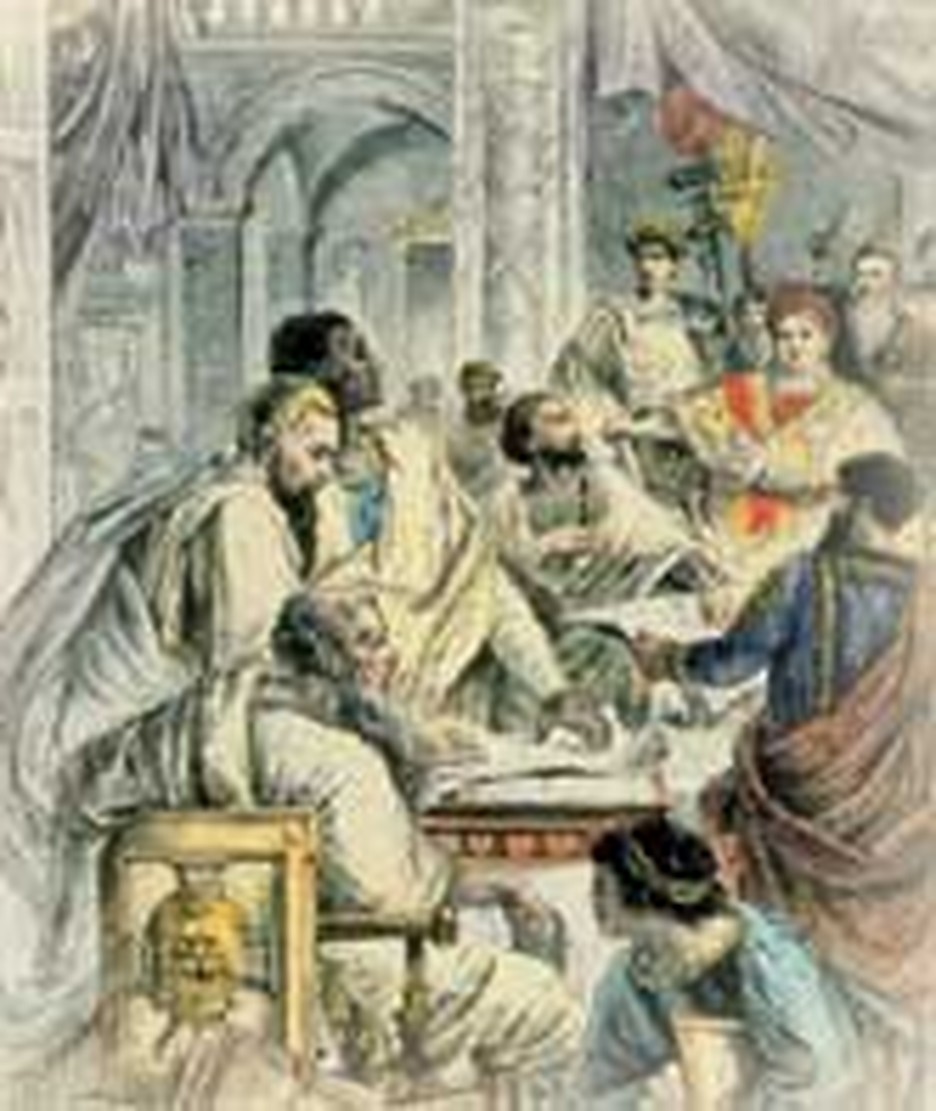
Three hundred and twelve bishops gathered. In the center of the room, on a throne, lay the four gospels. The emperor himself, dressed in a purple gown and wearing a silver diadem, opened the council. It was he who had called them together. "I rejoice to see you here, yet I should be more pleased to see unity and affection among you." The place was Nicea. It was on this day, May 20, 325.
The next few days would be devoted primarily to one purpose: finding a way to describe exactly who Jesus was. Arius had preached that Christ was a creation of God, the first of all his creatures, to be sure, but a creation nonetheless. He was not of the substance or nature of God. "There was a time when the Son was not," he and his followers insisted. They even made up songs with catchy tunes to propagandize their ideas among the masses.
Bishop Alexander of Alexandria was horrified. Jesus, the Word, had co-existed eternally with God the Father he argued. If Christ were not God, then man could not be saved, for only the infinite and holy God could forgive sin. He deposed Arius. Arius did not go quietly. He gathered followers and continued to teach his controversial doctrine. The factions rioted. The unity of the empire was shaken. Constantine was alarmed. He called the council.
As the council progressed, the bishop of Nicomedia defended Arius' views, attempting to prove logically that Jesus, the Son of God, was a created being. Opposition bishops snatched his speech from his hand and flung it in shreds to the floor. They had suffered for Christ, some of them greatly, in the persecutions of Diocletian. They weren't about to stand by and hear their Lord blasphemed. Otherwise, to what purpose had they borne their gouged eyes, scourged backs, hamstrung legs and scorched hands?
The issues of Nicea boil down to this. If Christ is not God, how can he overcome the infinite gap between God and man? If a created being could do it, there were angels aplenty with the power. Indeed, why could not any good man himself bridge the gap? On the other hand, Jesus had to be truly man, otherwise how could he represent mankind?
At some point the council decided their best course was to write a creed that testified to what they believed. The creed of Nicea became a document of fundamental importance to the church. That so many of the bishops who approved it had suffered greatly for Christ only added to its significance. The council itself was a forerunner to many more, some international, some regional. Those councils which came after also grappled with issues of Christ's humanity and deity. Was he one person or two? Was he God while in his mother's womb? Did he have just one will? Which books belong in the Bible? The seventh ecumenical church council was also held at Nicea.
Bibliography:
- Aland, Kurt. Saints and Sinners; men and ideas in the early church. Philadelphia: Fortress Press, 1970.
- Bellitto, Christopher M. The General Councils; a history of the twenty-one general councils from Nicaea to Vatican II. New York: Paulist Press, 2002.
- Bray, Gerald. Creeds, Councils and Christ. Downer's Grove, Illinois: Inter-varsity Press, 1984.
- Davis, Leo Donald. The First Seven Ecumenical Councils (325-787): their history and theology. Wilmington, Deleware: M. Glazier, 1987.
- Hughes, Philip. The Church in Crisis: a history of the general councils 325--1870. Garden City, New York: Hanover House, 1961.
Last updated April, 2007.







